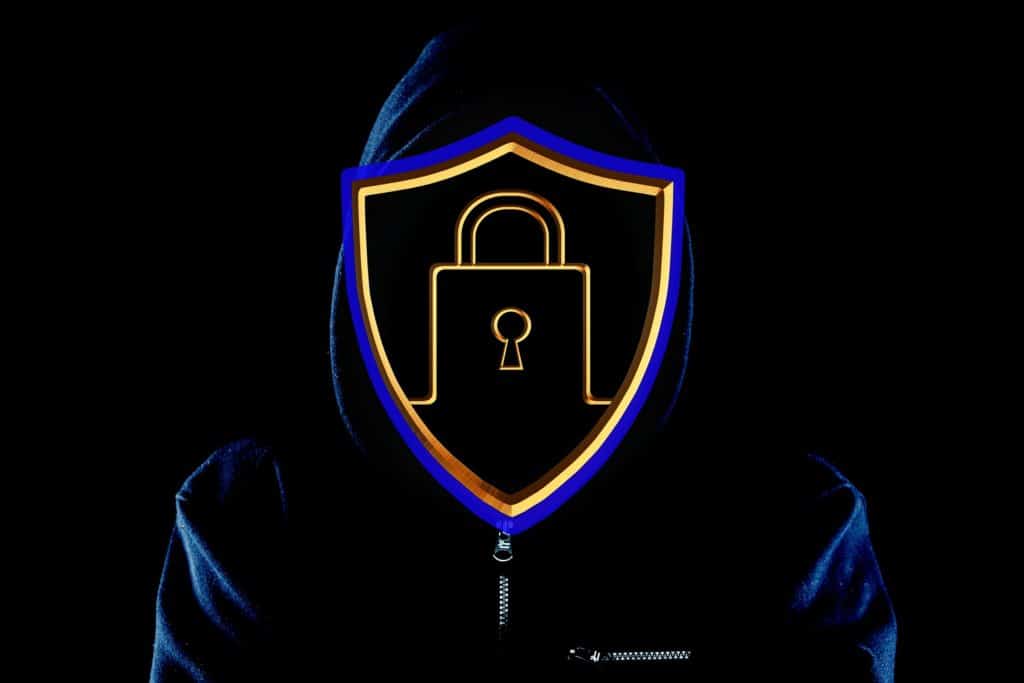Humans have advanced in numerous ways and have proven to be adaptable in almost any situation over the years (especially this last one), which makes us remarkable. While we have achieved many milestones, it’s also true that some of us are stuck in their using-a-first-name-and-birthday-for-every-account-they-open-while-still-clicking-on-suspicious emails ways. The fact is, as the world (and, more specifically the internet) keeps evolving, we have to get better at protecting ourselves from hackers and malware.
Since the WFH (work from home) life is not going away any time soon, let’s talk about something that everyone who owns a computer needs to be well versed in, cybersecurity. We know it’s not exactly at the top of everyone’s list of priorities given how much we already have on our plates, but trust us, this is one topic that needs to be high up there. We are here to tell you one thing and one thing only: cybersecurity matters! Last year’s frenzy made it all too easy for hackers to end up in places we didn’t want them in. In the wake of the pandemic and with everything that we had to deal with as a result, cybersecurity fell by the wayside.
Targets of Cyber Attacks
First things first, the most common targets are small to medium businesses because they don’t have the correct processes in place and are therefore more likely to have vulnerabilities in their system. This makes it easy to steal data and ask for a ransom (this is called ransomware). With ransomware, the data is being held hostage; if the company is unprepared, they will usually pay up. The costs to retrieve stolen data are typically higher than expected and are sadly a waste since those funds could have been allocated elsewhere. Although small to medium businesses tend to be more common targets, that does not rule the rest of us out.
During 2020, many companies of all sizes had to readjust their operations to a work from home model. This move, while great for those of us who were lucky enough to be given the option, left a lot of new and easy targets for hackers. The fact is, many companies were not ready for this WFH shift in 2020 and did not have the proper systems in place to keep themselves or their employees safe while doing things like remotely accessing filesystems and databases.
Now that we’ve got a year under our belt, let’s make sure that we’re covered. We all have a duty to ourselves and our sanity to be well prepared, should a potential cyber-attack ever present itself.
Types of Cyber Attacks
They come in many shapes and sizes, but here are some of the most common types to keep an eye out for:
Malware – can be anything from viruses to ransomware, and spyware. This malicious software is capable of taking over a device and making devastating changes to it. Data can be stolen, altered, encrypted, or disappear altogether. Yikes.
Phishing – this has become a very popular way to hack devices. Essentially, hackers send out illegitimate emails from familiar-looking companies (yet they always look a little suspicious i.e. chris789@airbnbcompany.com is obviously not an Airbnb employee) to the end-user and with malicious links and attachments. If the user inputs their login information or clicks on the links within these types of emails, the hacker has struck gold.
Man in the Middle (MITM) – occurs when a hacker manages to find their way into the middle of a two-party transaction. This happens often when using unsecured WiFi networks, which is why we recommend waiting to make that Amazon purchase when you get to your final destination rather than doing it at the airport.
Denial of Service (DoS) – occurs when networks and servers become overloaded and no longer have any bandwidth available, resulting in the users being unable to access the servers and networks.
Structured Query Language Injection – in this situation, harmful code is inserted into an SQL server, which results in the server revealing sensitive information.

After Effects
Not only do cyber-attacks drain your wallet and energy, but they also take away from valuable productivity time for you and/or your teams. All of the hours spent dealing with this could be better spent on actually growing your business. It’s also true that your reputation could be negatively affected and your customers may look elsewhere for services related to yours once notified of a breach.
Fact: 74% of consumers said they would switch providers in the event of a breach.
What You Can Do Right Now
Overwhelmed? Don’t be, there are a ton of measures you can take to ensure that you are protected while online, here are some of the easiest:
1. Sign up for text and email alerts to stay aware of all bank activity. This seems like a very obvious one, but many people don’t opt-in for this option and regret it later.
2. Look out for the “s” in front of website URLs. That stands for “secure”. These sites are your friends. If you are in a high traffic area such as an airport, try to refrain from inputting personal information into websites such as eCommerce stores.
3. Keep your devices up to date. There’s a reason why updates are being made, a big one being security so don’t let yourself get caught out. Always keep your devices up to date.
4. Use a VPN (Virtual Private Network). A VPN is a secure, encrypted connection between two networks or between an individual user and a network. It allows you to hide your browsing while surfing the web.
5. Use an SSO (Single Sign-On) service like “Sign In With Apple”, Google, or Facebook, where you log in to different websites and services using your Apple, Google, or Facebook username instead of having to deal with separate usernames and passwords.
6. Use multi-factor authentication. You’ll be glad you did!
7. Use a password manager like LastPass or 1password.
8. Physically secure your devices when not in use to avoid tampering.
At WePropagate, we are really big on cybersecurity. We take your sensitive information and store it in a safe and responsible way because we know what is on the line if these things get into the wrong hands. Rest assured that at WePropagate, you are in safe hands. If you are looking for a partner to help get your website to the next level while ensuring optimal security, let’s chat!

